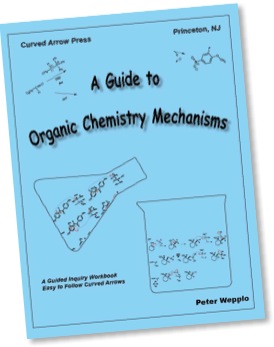The book uses our ability to recognize and learn patterns. Therefore, an emphasis has been placed upon teaching the patterns of reactions. It is those patterns that are used to solve new problems. The book helped us increase our class averages on the American Chemical Society’s Standard Examination in Organic Chemistry by up to twenty percentile points.
There are many books explaining organic chemistry, from A to Z, from Organic Chemistry Made Simple to advanced organic chemistry. There you have it, all of the explanations anyone needs. So, why do we need another book? Memorization, although necessary, is not learning. This book was written for, “How does our brain work?” As you use this book, you will see why it is so unique and why it is only a workbook. The structure and objectives of this book prevent lengthy explanations. It is a very short book and cannot provide the depth equal to a 1200 page textbook. Yet, it does what the 1200 page textbook cannot, it helps you to LEARN.
It is difficult to tell students how to learn organic chemistry because it isn’t about memorizing facts. It isn’t something that I can put into a simple sentence or a paragraph. I have written about it and this website contains much discussion about learning. You should spend some time on this website, not just in looking at the pages or the content, but look at how well students have done in my classes. Ask yourself, “How can I learn?” That is the objective of this book.
ResA ResD SubsA SubstD OxyA OxyD
Missing Ex2 Ex3 Ex4 Ex5 Ex6 Ex7 Ex8 Ex9 Ex10
resonance radical_resonance substitution Elimination substitution2 williamson Amide_form Ester_w_G pinacol Ex10
resonance resonance_radicals Acid_Base_equilb substutionD E2_Elim Elim_to_alkyne Ester_f_acid_chloride 4 Grignard HBr_addition oxymercuration SN1_rxn substitution_azide Lewis_Acid_rxn
